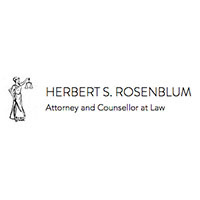Alexandria RICO Act Lawyer, Virginia
Sponsored Law Firm
-
 x
x

Click For More Info:
-
The Law Offices of Richard L. Cooper, P.A.
848 Brickell Avenue Suite 800 Miami, FL 33131» view mapDWI/DUI, Drug Trafficking, Felony Nationally Ranked Top 40 Under 40
With Richard L. Cooper you can expect a trusted confidant who will work diligently to fully understand your case and determine a road map to help you regain control of your life.
800-756-2781
Not enough matches for Alexandria RICO Act lawyer.
Below are all Alexandria Criminal lawyers.
Herbert S. Rosenblum
✓ VERIFIEDHerbert Rosenblum is a practicing lawyer in the state of Virginia.
Philip Douglas Cave
✓ VERIFIEDI have extensive experience as a prosecutor, defense counsel, appellate advocate, and legal advisor in military cases. I have served tours of duty in ... (more)
Karin Riley Porter
✓ VERIFIEDKarin Porter is a practicing lawyer in Virginia who focuses on criminal cases. Ms. Porter has previously served as an Assistant Commonwealth's Attorne... (more)
FREE CONSULTATION
CONTACTFREE CONSULTATION
CONTACTFREE CONSULTATION
CONTACTSteven D. Briglia
FREE CONSULTATION
CONTACTFREE CONSULTATION
CONTACTFREE CONSULTATION
CONTACT
 Richard L. Cooper Miami, FL
Richard L. Cooper Miami, FL AboutMiami Attorney at Law
AboutMiami Attorney at Law ServicesCriminal Defense
ServicesCriminal Defense



